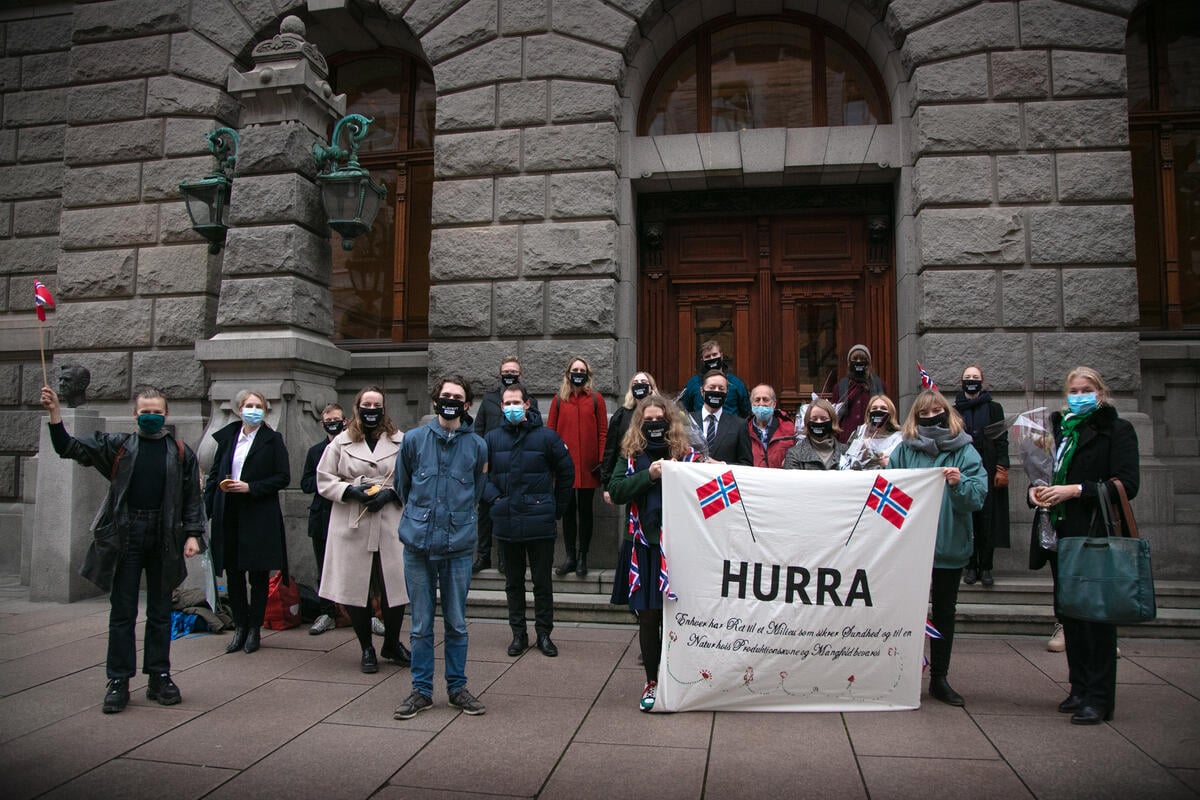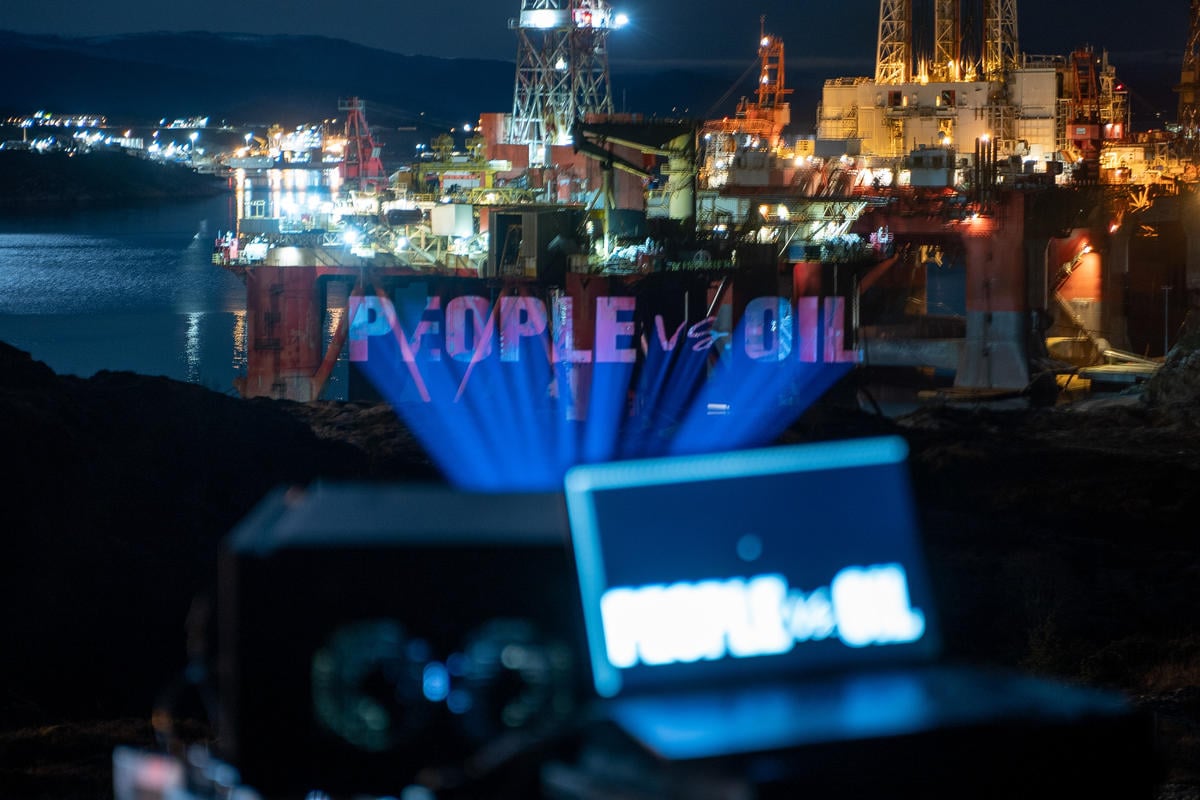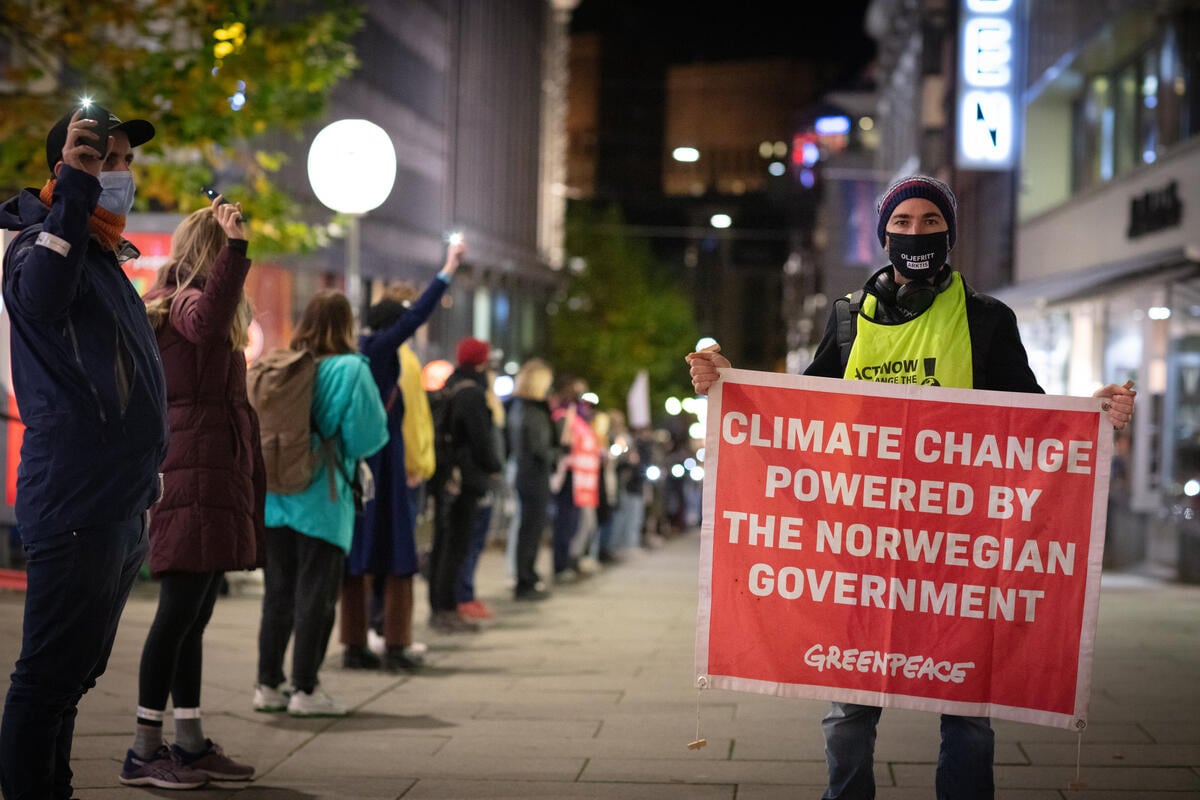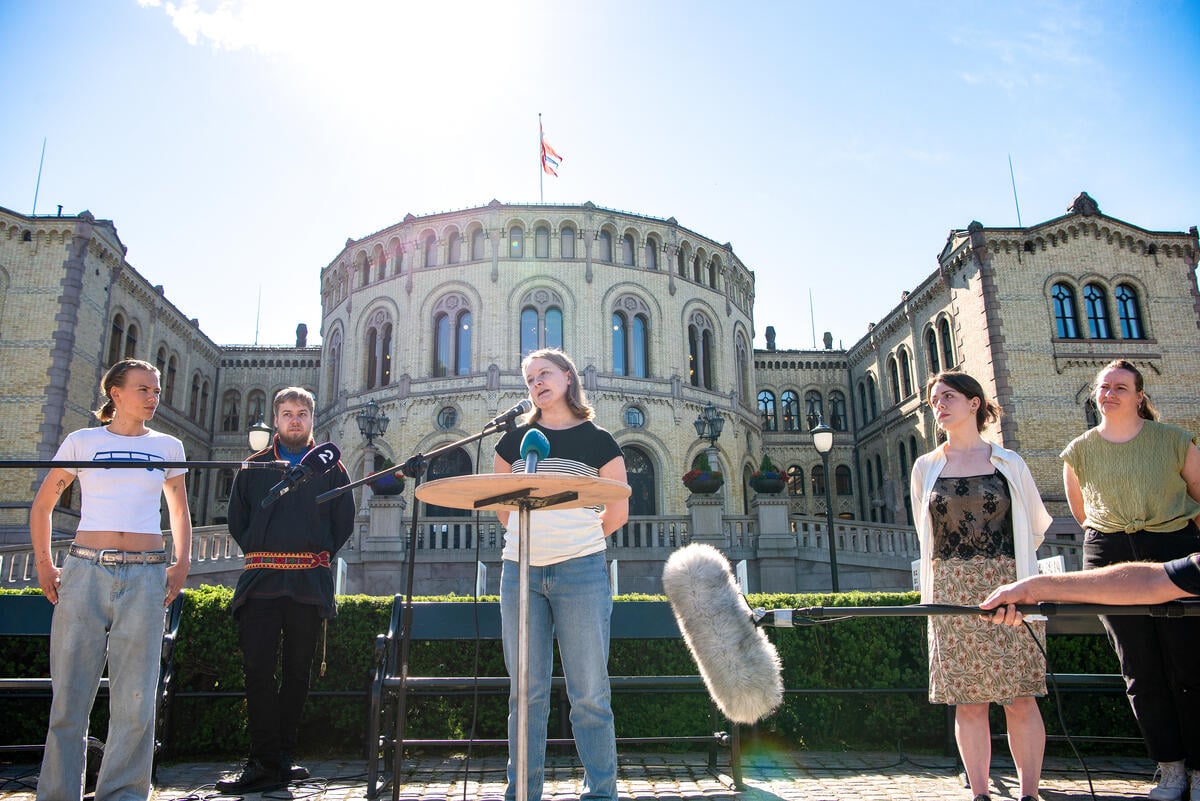In 2016, six youth activists, Young Friends of the Earth Norway and Greenpeace Nordic took the Norwegian government to court to stop new Arctic oil drilling. The central argument in what became known as the People vs. Arctic Oil case was simple but powerful: approving more fossil fuels in the middle of a climate crisis violates the Norwegian Constitution, international law, and people’s basic rights.
That case became the first of its kind in Norway. After years of hearings and appeals, it wound its way through every level of the national courts. While judges acknowledged that oil drilling has serious consequences for the climate, Norway’s Supreme Court ultimately refused to strike down the licences. Domestic legal options were exhausted.
But the fight didn’t stop there.
The case landed in the European Court of Human Rights (ECtHR) — the institution responsible for safeguarding the rights of 700 million people across 46 countries. For the first time, the Court is being asked to decide whether a government’s decision to expand its oil and gas production violates human rights: the rights to life, to health, and to a safe environment. This decision will be handed down on 28 October.
This isn’t just about Norway. The Court has labelled it a “potential impact case”, signalling that the outcome could set a powerful precedent far beyond Scandinavia. If the judges find in favour of the activists and Greenpeace Nordic, it could reshape energy policy across Europe by establishing that governments cannot approve new fossil fuel projects without properly accounting for their climate impact.
The new chapter: Borgarting Court of Appeal
Along with Nature and Youth Norway, Greenpeace Nordic have continued to challenge the government’s decision to approve new oil and gas fields. As a result of a partial win in the Supreme Court in People vs. Arctic oil, a new climate case currently sits before the Borgarting Court of Appeal. The Court is due to decide whether Norway’s Ministry of Energy acted lawfully when granting consent for three major North Sea projects without assessing the climate impact of the projects, as required by the Supreme Court decision. In the first instance, the Oslo District Court found that the approvals were illegal.
What makes this stage so significant is that the Court of Appeal sought clarity from the EFTA Court — the body that interprets European Economic Area law, including the rules Norway has signed up to. The question was crucial: when assessing the environmental impact of new oil projects, do governments also have to assess the impacts of the greenhouse gas emissions released when that oil and gas is eventually burned?

Two landmark advisory opinions
On 21 May 2025, the EFTA Court delivered its answer. The judges were clear: emissions from the combustion of petroleum and gas extracted as part of a project and sold to third parties are “effects” of that project under the Environmental Impact Assessment (EIA) Directive.
This ruling knocks out the government’s central defence. Norway had argued that only the direct impacts of extraction and production needed to be assessed, not the far greater emissions released when the fuel is burned. The Court rejected that position.
Just as importantly, the EFTA Court said that national courts must, as far as possible, eliminate the unlawful consequences of failing to conduct a proper assessment. In other words, if projects were approved without fully accounting for downstream emissions, that failure cannot simply be waved away.
Another positive development came just two months later. In July 2025, the International Court of Justice (ICJ), the world’s highest court, issued its first-ever Advisory Opinion on climate change. The ICJ was unequivocal: States have binding legal obligations to prevent activities within their borders–– including through the granting of fossil fuel exploration licences and fossil fuel production– from causing climate damage, both domestically and abroad. It also confirmed that failing to act in line with climate science can breach human rights law.
This opinion matters hugely for the People vs. Arctic Oil case. Norway is one of the world’s largest exporters of oil and gas. By approving new fields, it knowingly adds to the global emissions that drive climate harm — not only within Norway, but across the world. The ICJ has now confirmed that such conduct is not just irresponsible, it can also be unlawful.

The bigger picture
From the moment the People vs Arctic Oil case was launched in 2016 through to the setback at the Supreme Court in 2020, campaigners have kept pressing the courts to recognise the obvious: expanding fossil fuels in a climate emergency undermines basic rights and breaches legal duties.
The EFTA Court has now validated what campaigners have argued all along. Climate impacts don’t stop at the drilling site. Every tonne of carbon released from burning oil and gas fuels the crisis. Pretending otherwise is unlawful.
This case also resonates with a wider wave of climate litigation. In recent years, courts in Europe and beyond have ruled that governments and companies must consider downstream emissions and protect human rights when approving projects.
What’s at stake
The Borgarting Court of Appeal will now decide the case in light of the EFTA Court’s judgment. For Norway, the stakes could not be higher. If the Court strikes down the approvals, it would send a powerful message across Europe — that governments must reckon honestly with the full climate cost of fossil fuel expansion.
Also, before the ECtHR, the answer should be obvious. Climate change is already threatening lives, livelihoods, and homes. By putting human rights at the centre of climate decisions, the ECtHR has the chance to raise the bar — making it clear that protecting people comes before protecting fossil fuel profits. And the advisory opinion from the International Court of Justice (ICJ) adds even greater weight to that principle: governments that expand fossil fuels risk being held liable under international law for the damage they cause.
It would establish that governments have a duty to fully assess the climate harm their decisions cause, even when emissions occur beyond their borders. That principle, once enforced, would raise the bar for environmental assessments everywhere — making it harder for governments to greenlight new fossil fuel projects while ignoring their real impact.

Young Friends of the Earth Norway (Nature and Youth) and Greenpeace are taking the Norwegian government to the supreme court of Norway for opening up new oil fields in the fragile and diminishing Arctic.
The road ahead
What started as a small group of young people and activists taking their government to court has now helped shape European law.
The next steps lie with the ECtHR and the Borgarting Court of Appeal and both courts should be guided by strong domestic and international legal precedent. We’re pushing for judgments that put people and the planet ahead of fossil fuel profits.
Whatever the outcome, one thing is certain. The case against Norwegian oil and gas has already raised the standard of what the law demands from States in the climate crisis. And it shows that persistence pays off — when governments fail to act responsibly, people have the power to take them to court, and win.
Klimentina Radkova is Campaigner at Greenpeace Nordic.
Source link
Klimentina Radkova www.greenpeace.org

